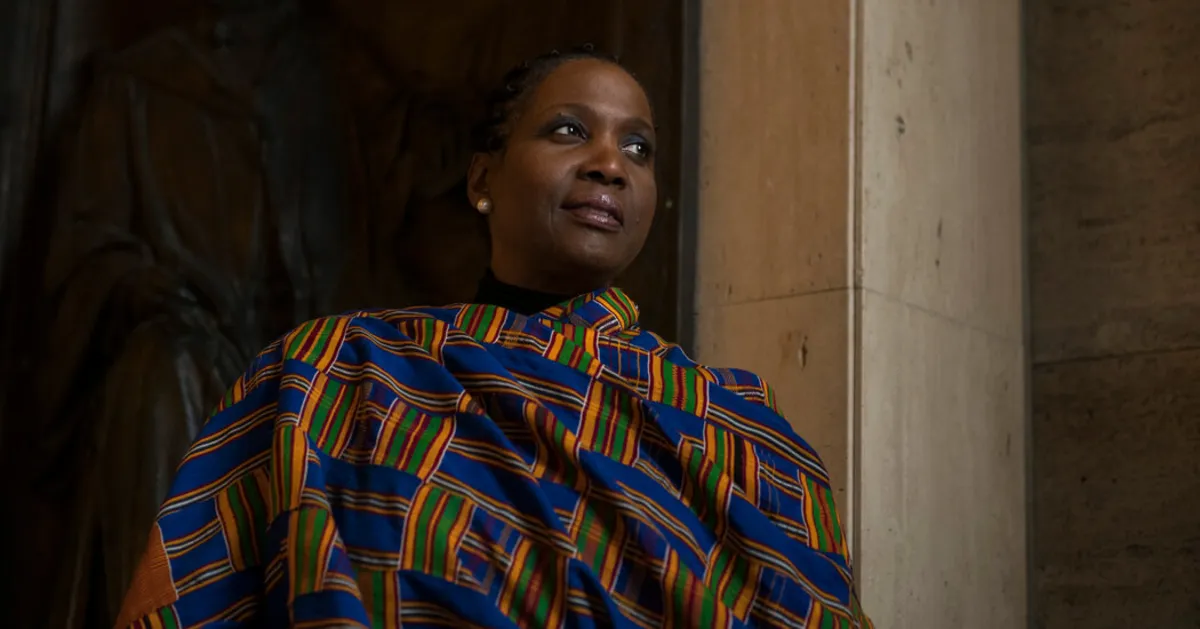
Years before Lisa Cook became one of the latest targets of former President Trump in his campaign to exert control over the Federal Reserve, she shared her experiences as one of the few Black women in a field historically dominated by white men. In a poignant New York Times opinion piece published in 2019, Cook and a colleague remarked, “Economics is neither a welcoming nor a supportive profession for women.” She emphasized, “But if economics is hostile to women, it is especially antagonistic to Black women.”
In 2022, President Joseph R. Biden Jr. nominated Ms. Cook to the Fed’s powerful Board of Governors. Her confirmation journey was fraught with challenges. Despite boasting a robust résumé that included positions within the Treasury Department, the White House, and extensive academic credentials, Cook faced relentless scrutiny regarding her qualifications. Ultimately, she was confirmed by a narrow margin, with Vice President Kamala Harris breaking a 50-50 tie after a wave of opposition from Republican senators. Lisa Cook made history as the first—and remains the only—Black woman to serve on the Federal Reserve Board.
Recently, former President Trump has intensified efforts to remove Ms. Cook from her position. On a Wednesday, Bill Pulte, director of the Federal Housing Finance Agency, accused her on social media of falsifying bank records and other documents to secure favorable mortgage terms before her appointment to the Fed. Following these allegations, Trump issued a threat on Friday, stating he would fire Ms. Cook if she did not resign. Cook, however, has remained resolute. In a statement released by the Federal Reserve, she declared her “no intention of being bullied” and committed to gathering “accurate information to answer any legitimate questions and provide the facts.”
Since joining the Federal Reserve, Cook has aligned her votes with those of Chair Jerome H. Powell. This includes her support for interest rate cuts last year and maintaining steady rates this year. Economists often label her a “dove,” indicating her general preference for lower interest rates. In a notable speech in November, she advocated for continued interest rate reductions, while also stressing that the pace of cuts should be contingent on economic data. However, her perspective on inflation has evolved, especially in light of the recent challenges posed by Trump’s tariffs, which threaten to increase prices.
In a June address, Ms. Cook highlighted the potential risks of sustained high inflation following the pandemic, warning that it could lead firms to raise prices and consumers to expect persistent inflation. Her insights reflect a nuanced understanding of the economic landscape.
Born to a hospital chaplain and a nursing professor in Georgia, Lisa Cook was among the first Black students at her schools. She earned her undergraduate degree from Spelman College, a prestigious historically Black institution in Atlanta, and later obtained a second degree from Oxford University as a Marshall Scholar. Initially uninterested in economics, her passion for the field ignited during a hike up Mount Kilimanjaro with a British economist, leading her to pursue a doctorate in economics at the University of California, Berkeley, which she completed in 1997.
Cook's academic career has predominantly been at Michigan State University, where she served as a professor of economics and international relations. Throughout her tenure, she emerged as a strong advocate for increasing diversity within the economics profession, spearheading initiatives such as the American Economic Association’s summer program aimed at preparing underrepresented students for graduate studies in social sciences.
In 2019, during the summer program, Cook and then-student Anna Gifty Opoku-Agyeman collaborated on an article addressing the toxic culture faced by Black women in economics. A survey conducted that year revealed that 62 percent of Black women in the field reported experiencing racial or gender discrimination, or both. One participant encapsulated the sentiment that many shared, stating, “It was a mistake for me to choose this field.”
Opoku-Agyeman, now a doctoral student at Harvard and author of an upcoming book on the economic challenges confronting women of color, noted the significance of targeting Lisa Cook, the only Black female governor at the Fed. “They’re using who they think is most expendable to essentially shape the way that the Fed functions,” she remarked. She further emphasized that focusing on Cook’s property ownership is a broader attack on the perception of wealth-building among Black Americans, who are nearly 40 percent less likely than their white counterparts to own homes. This situation underscores the ongoing challenges and biases that women of color face in the economic policy arena.